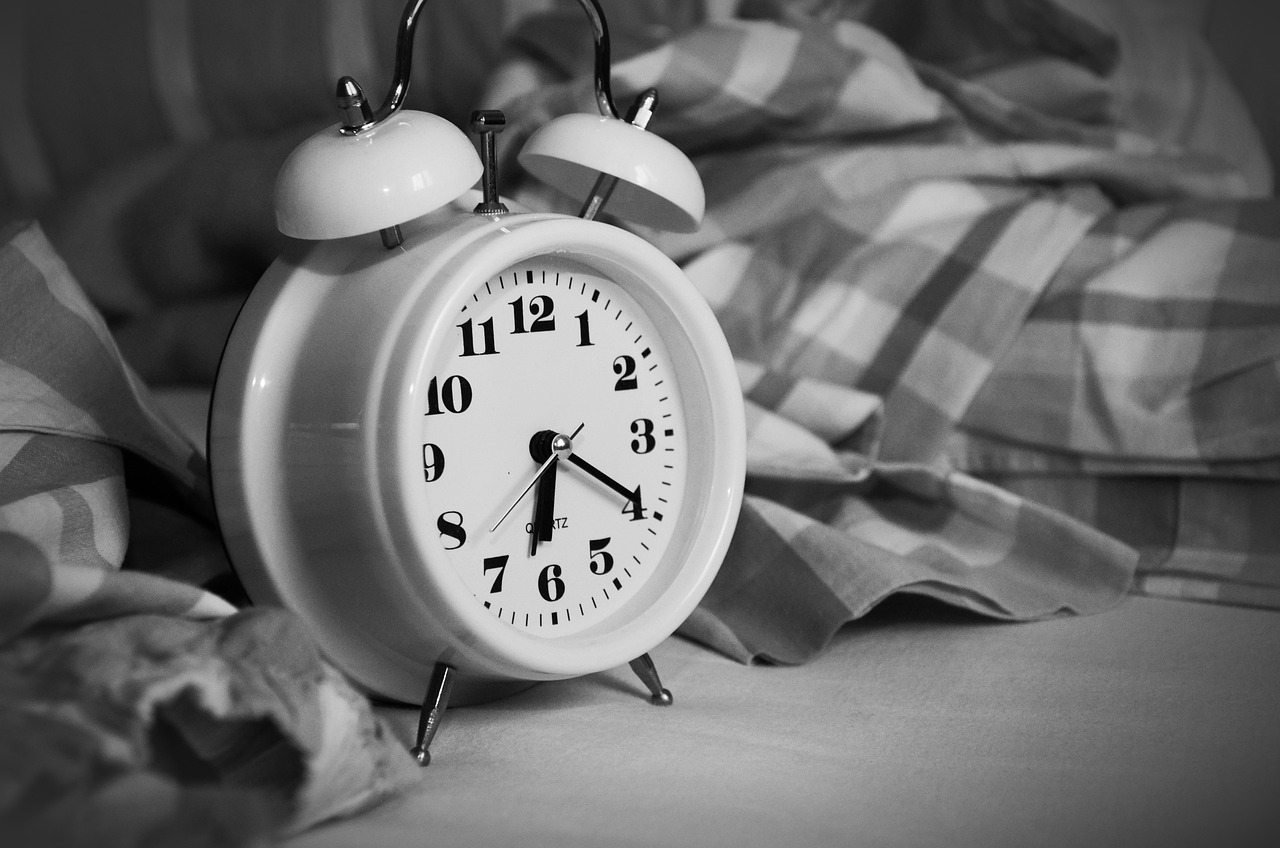Mattress Science
January 2024Is Hot Chocolate Before Bed a Sleep-Friendly Choice?
When you think of the perfect bedtime routine, you may have hot chocolate at the top of your pre-sleep checklist. While hot chocolate contains compounds that may help or influence sleep-related factors, the interplay between hot chocolate (cocoa), sleep, and overall sleep hygiene is complex. Is hot chocolate a sleep-friendly choice or one that might warrant caution?
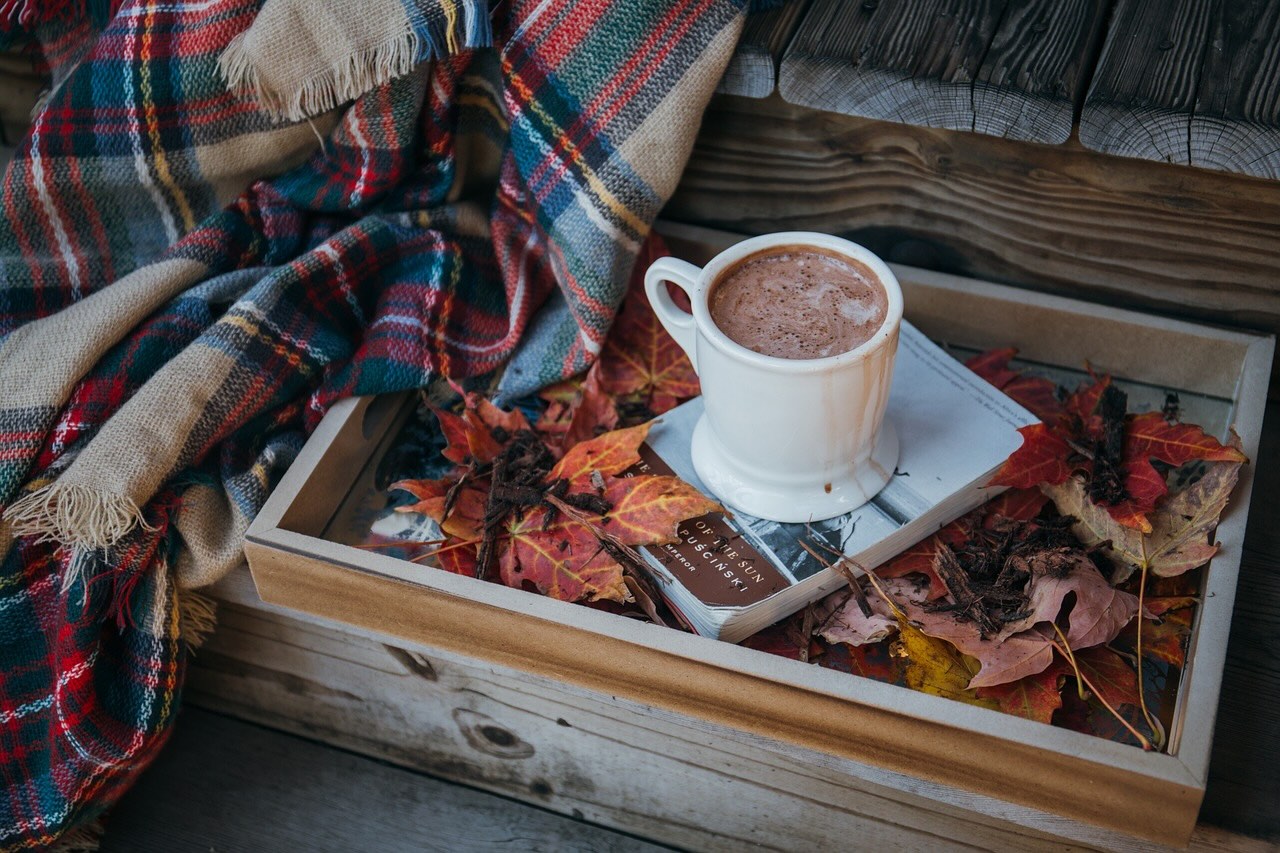
This article reviews the components of cocoa, such as theobromine and serotonin precursors, and their potential effects on sleep regulation. Additionally, it examines existing research on the subject, investigating both the positive and negative aspects of consuming hot chocolate before bedtime.
Exploring the Science of Cocoa and Sleep
While our normal sleep articles consider mattress options, upholstery, spring counts, and sleep positions, other factors are at play when it comes to getting the best night’s sleep. Even if you have the most fabulous mattress and bedding, other elements, like that late-night hot chocolate, may impact your sleep quality.
By considering factors like caffeine content, individual tolerance, and overall diet, this article aims to provide a comprehensive overview of whether hot chocolate can be a soothing bedtime beverage or if it might disrupt a good night’s sleep.
Cocoa Components of Hot Chocolate
Cocoa is rich in compounds, including theobromine, a stimulant similar to caffeine, and serotonin precursors. Theobromine has vasodilatory effects, potentially promoting relaxation, while serotonin is a neurotransmitter associated with mood and sleep regulation. Understanding these components sets the stage for evaluating their potential effects on the sleep-wake cycle.
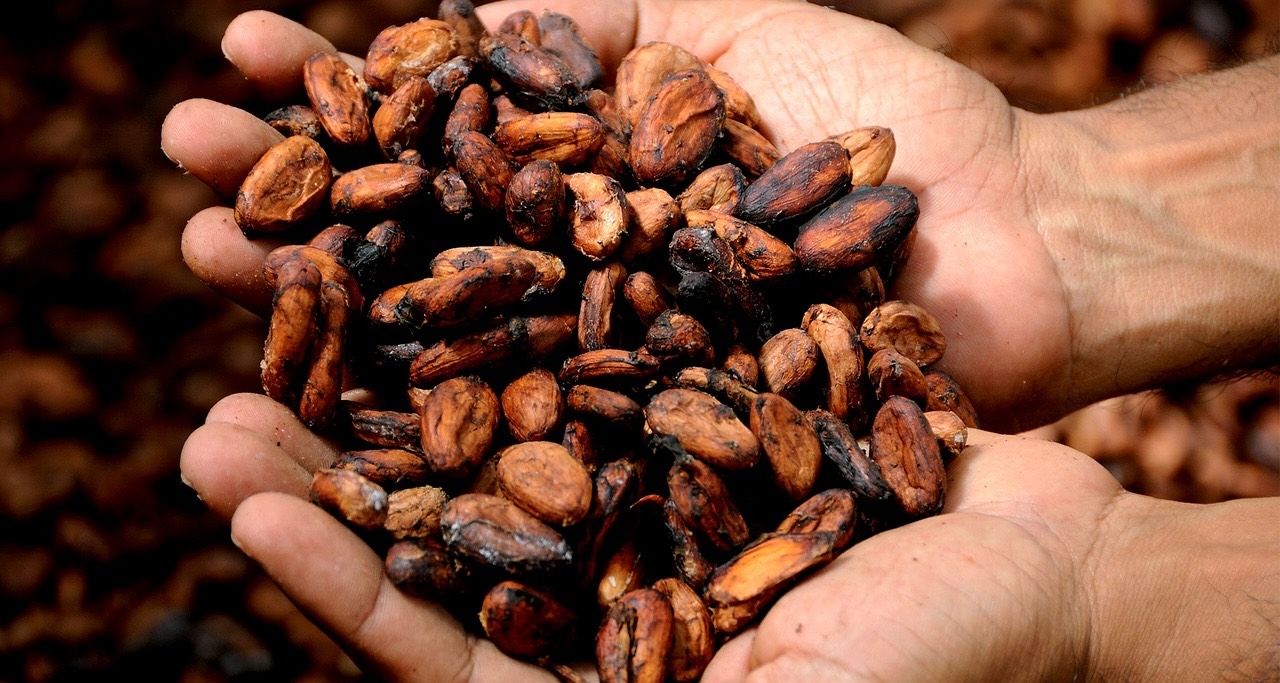
Theobromine and Sleep
Research suggests that theobromine may have both stimulating and relaxing effects on the central nervous system. While it may increase heart rate and alertness, it also has vasodilatory properties that could enhance blood flow and relaxation. The balance between these effects may vary among individuals, impacting how theobromine influences sleep.
For some people hot chocolate will make them sleepy and for others it may make them more alert.
Serotonin Precursors
Cocoa contains precursors to serotonin, such as tryptophan. Serotonin plays a crucial role in regulating mood and sleep-wake cycles. The presence of these precursors raises questions about whether hot chocolate might contribute to serotonin production and, consequently, influence sleep-related processes.
This is the major influence of hot chocolate on making you sleepy.

Caffeine Content of Hot Chocolate
Hot chocolate may contain varying amounts of caffeine, depending on the cocoa content and preparation method. While the caffeine content is generally lower than that of coffee, individuals sensitive to caffeine should be mindful of its potential impact on sleep.
If you already find tea and coffee prevent you from falling asleep, drinking hot chocolate may not be the best idea either. Always choose a caffeine-free alternative for your pre-bedtime drink.

Research Findings on Hot Chocolate & Sleep
Existing studies on the relationship between cocoa consumption and sleep are limited but indicate potential benefits. Some research suggests that the theobromine in cocoa may enhance relaxation and promote sleep.
Most of the information comes from people’s personal experiences with drinking warm drinks before bed, but there is some sleep research on the effects of being warm before bed and the positive impact on sleep quality.
Here are some key sleep findings supported by relevant research:
A) Thermoregulation and Sleep
The body’s natural circadian rhythm involves a drop in core body temperature as part of the sleep-wake cycle. Studies, such as one published in the journal “Sleep Medicine Reviews” (2007), suggest that the initiation of sleep is often associated with a decline in body temperature. Maintaining a comfortably warm environment may assist in facilitating this natural temperature drop, signalling the body that it’s time to sleep.
B) Peripheral Vasodilation
A study published in the “Journal of Applied Physiology” (1994) found that peripheral vasodilation (the widening of blood vessels in the extremities) can enhance the process of falling asleep. Warming the hands and feet, which have a high density of blood vessels, may facilitate peripheral vasodilation and contribute to a sense of warmth and relaxation. So try those super warm socks an hour before bed to see if it helps you drift off!
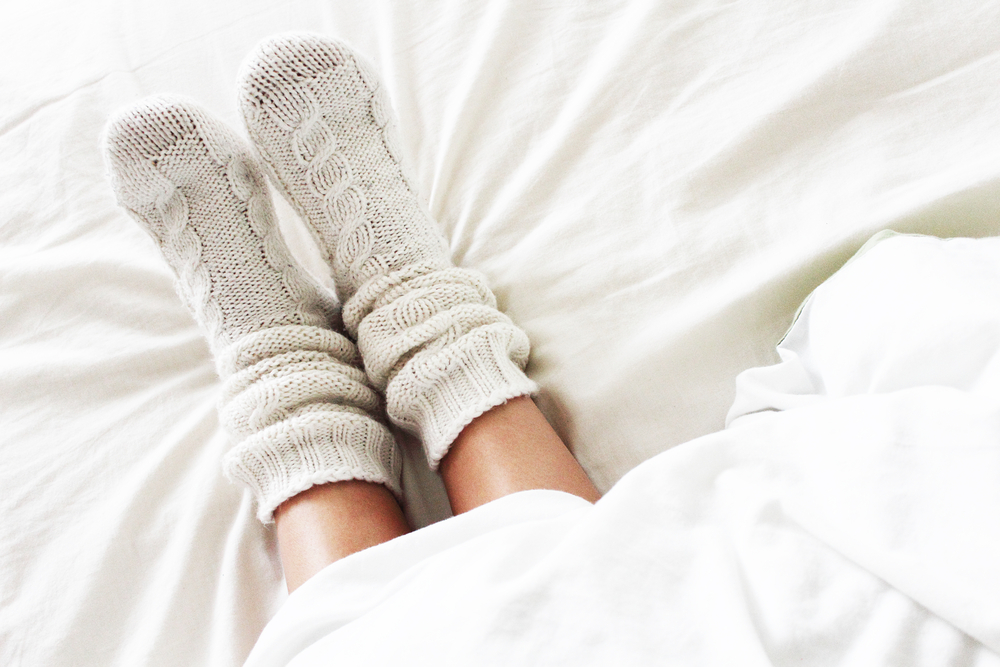
C) Warm Baths and Sleep Quality
A systematic review and meta-analysis published in the journal “Sleep Medicine Reviews” (2019) explored the effects of warm baths on sleep quality. The analysis indicated that warm baths, especially those taken 1-2 hours before bedtime, can have a positive impact on sleep onset latency (the time it takes to fall asleep) and subjective sleep quality.
This is because the body’s natural circadian rhythm involves a drop in core body temperature as part of the sleep-wake cycle. The cooling effect post-bath mimics this natural temperature decline, promoting the initiation of deep sleep.
Warm baths may also stimulate the production of sleep-inducing hormones, such as melatonin. The warm temperature of the bath contributes to the release of melatonin, which helps regulate the sleep-wake cycle.
D) Comfort and Relaxation
Research suggests that creating a comfortable and cosy sleep environment in the bedroom can enhance feelings of relaxation, which is conducive to better sleep. A study in the journal “Sleep Science” (2019) highlighted the importance of sleep environment factors, including the ideal sleep temperature, which is around 16 degrees, in promoting sleep quality.
During our two decades of making mattresses and becoming sleep geeks, we can testify that your bedroom plays a huge role in your sleep quality. If your bedroom is chaotic and messy, that can lead to a disturbed night’s sleep. Subconscious cues of ‘this needs tidying‘ or ‘that needs fixing‘ can play on your mind. So, by creating a cozy bedroom, you can help remove barriers or blockages to deeper sleep.
Caution with Hot Chocolate Before Bed
While hot chocolate may offer potential sleep-friendly benefits for some individuals, moderation and awareness of individual tolerance are key. Those sensitive to caffeine should consider choosing low-cocoa or caffeine-free options.
Additionally, using hot chocolate in your bedtime routine alongside other sleep hygiene practices (explained in this article for those who are scratching their heads), such as a consistent sleep schedule and a relaxing bedtime environment, may enhance its potential sleep-promoting effects.
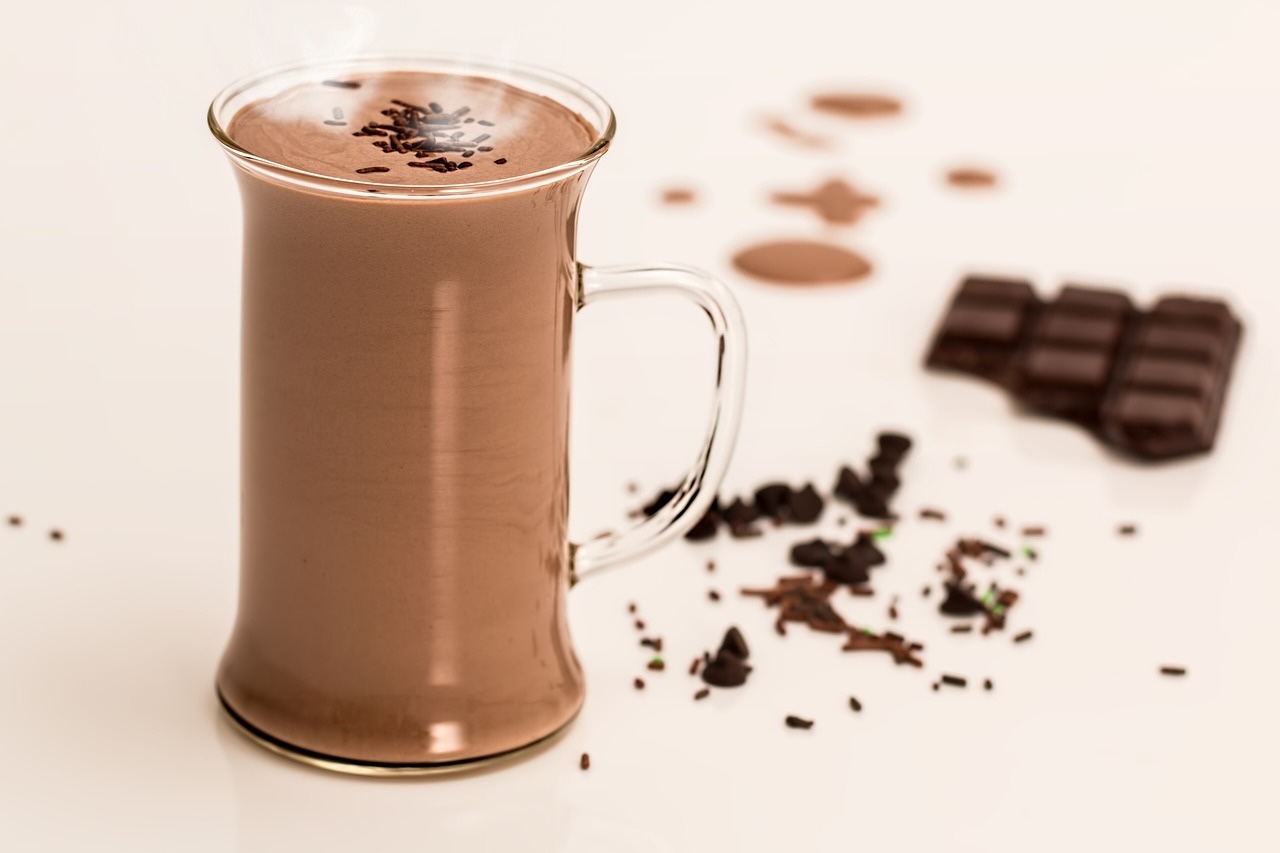
How much caffeine does Hot chocolate contain?
Pure cocoa powder used to make hot chocolate typically contains a small amount of caffeine. On average, a tablespoon of unsweetened cocoa powder may contain approximately 12-15 milligrams of caffeine.
If you use chocolate bars or chocolate chips to make hot chocolate, the caffeine content will be influenced by the type of chocolate. Dark chocolate generally contains more caffeine than milk chocolate. On average, a standard cup of hot chocolate made with chocolate may contain around 5-20 milligrams of caffeine.
Compared to coffee which on average, a single shot of espresso (approximately 1 ounce or 30 milliliters) typically contains about 63 milligrams of caffeine.
Caffeine-Free Alternatives to Hot Chocolate
If you’re looking for alternatives to hot chocolate before bed, consider several soothing and sleep-friendly options. Many people struggle to sleep after caffeine before bed. In fact, we always advise for people to avoid caffeine 4 hours before they go to bed.
These alternative bed time drinks provide warmth and relaxation without the caffeine content found in chocolate.
Here are some sleepy bedtime drink alternatives to hot chocolate:
1. Herbal Teas
Choose caffeine-free herbal teas such as chamomile, peppermint, lavender, or valerian root. These teas are known for their calming properties and can be enjoyed as a warm, comforting beverage before bedtime. Let herbal teas seep for at least 3 minutes to get the most out of them. Loose-leaf and organic teas have a better taste profile and contain higher concentrations of herbs compared to cheaper tea bag versions.
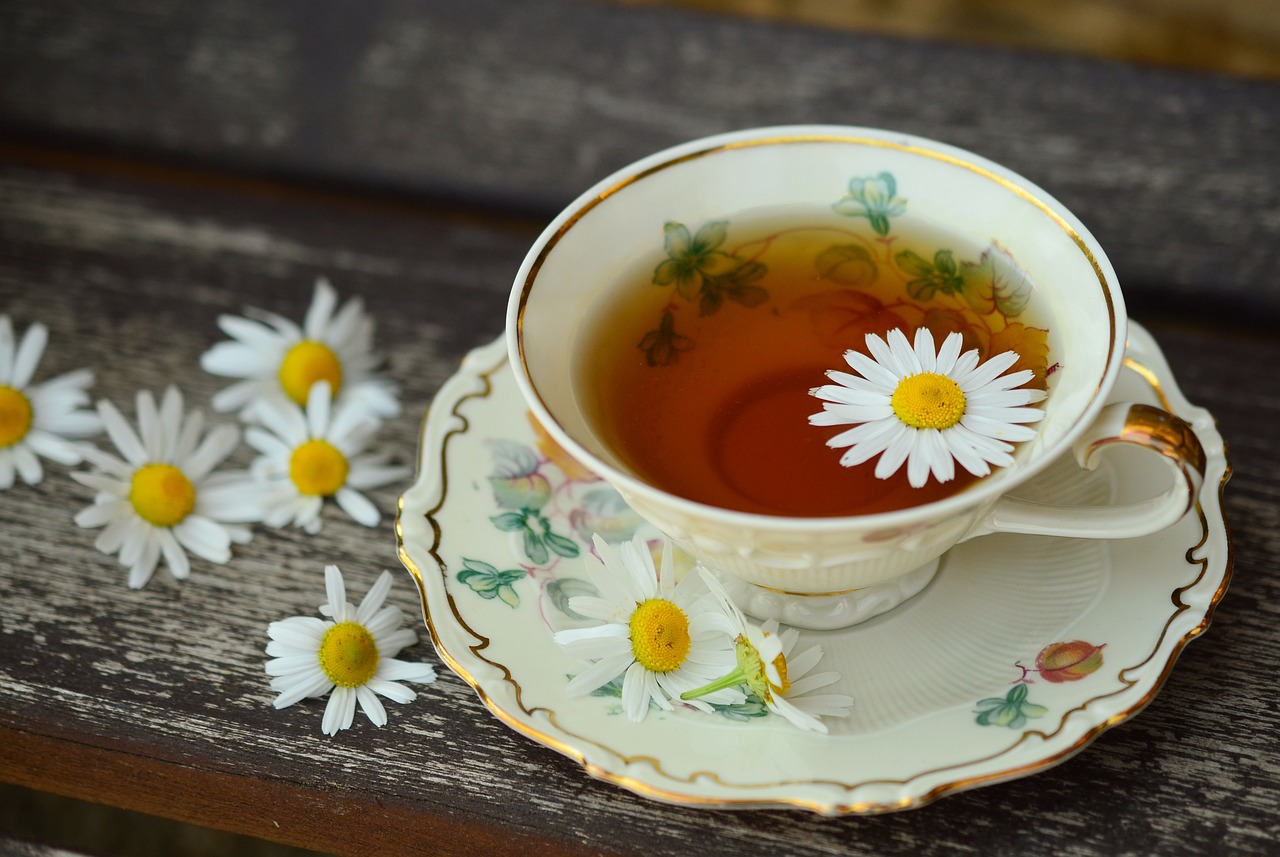
2. Warm Milk
Warm milk has long been associated with promoting relaxation and sleep. Milk contains tryptophan, an amino acid precursor to serotonin and melatonin, which are involved in regulating sleep-wake cycles. Try adding some cinnamon or spices to provide a real bed time treat!
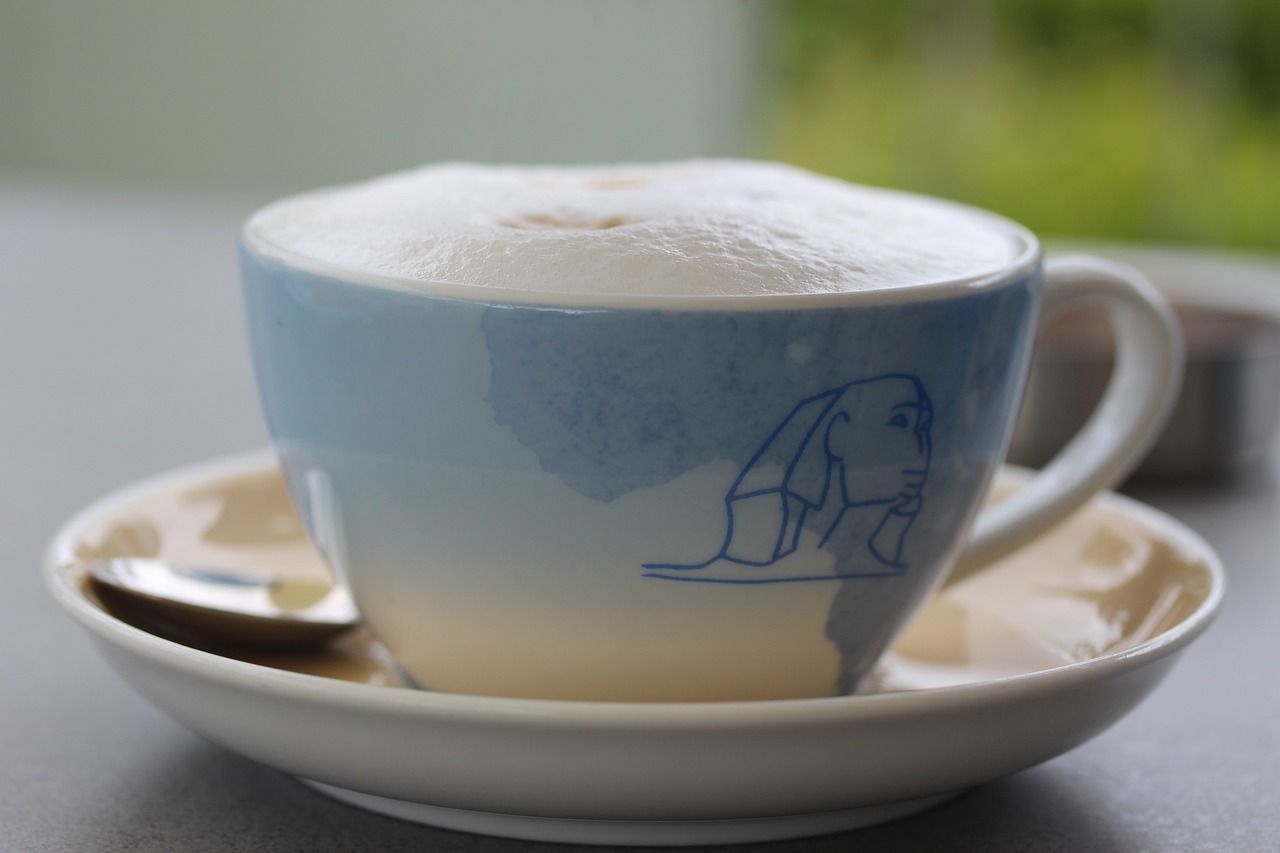
3. Golden Milk (Turmeric Latte)
Golden milk is made with turmeric, which contains curcumin and is known for its anti-inflammatory and potential relaxation-promoting properties. Mix turmeric with warm milk and add a touch of honey for sweetness.
4. Cherry Juice
Cherry juice is a natural source of melatonin, a hormone that regulates sleep. Choose a tart cherry juice, which may have higher melatonin levels, and warm it before bedtime. It also offers a fruity alternative for those sleepers who don’t have a sweet tooth or don’t like hot chocolate.
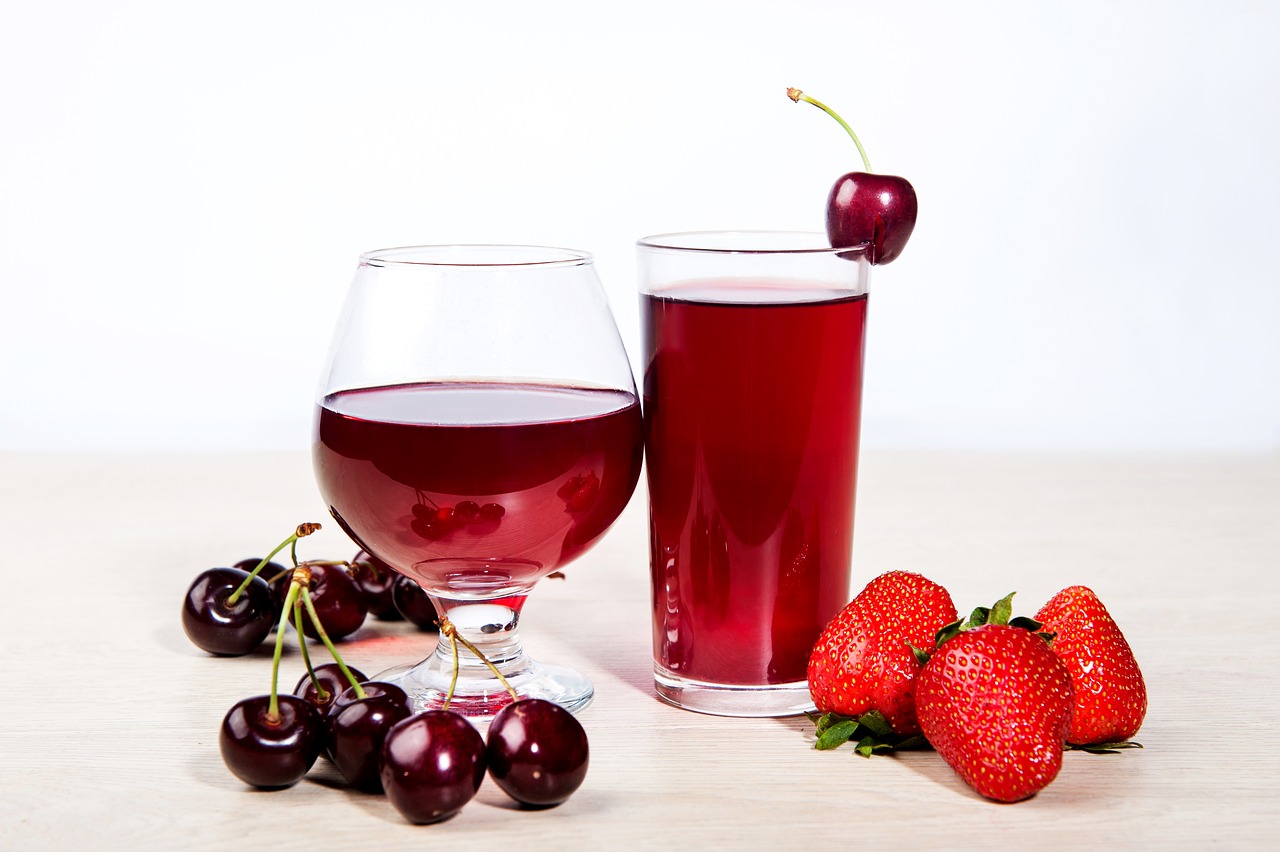
5. Warm Water with Lemon
A simple cup of warm water with a splash of lemon can be both hydrating and soothing. Lemon is known for its refreshing scent, which may contribute to a calming bedtime routine.
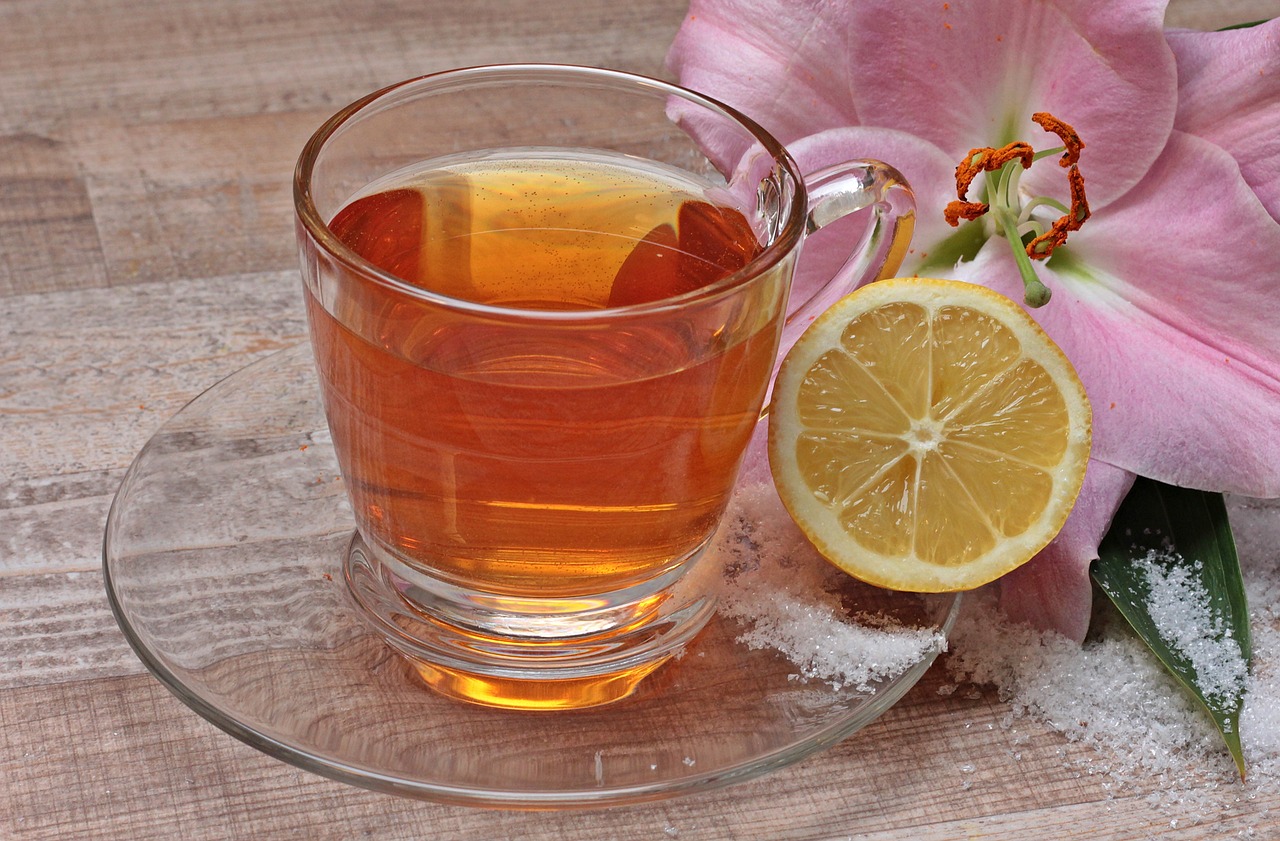
7. Hot Herbal Camomile or Miso Broth
Warm, non-caffeinated herbal broths, such as chamomile or miso soup, can be a comforting and hydrating alternative. Choose low-sodium options to keep it light before bedtime.
8. Warm Spiced Cider
Create a warm spiced cider by heating apple cider with cinnamon, nutmeg, and cloves. The aromatic spices add a cozy touch, and apple cider contains no caffeine. Beware apple ciders that contain alcohol, though, which can also disturb your sleep patterns.

9. Non-Caffeinated Hot Chocolate
Opt for hot chocolate alternatives that are specifically labelled as caffeine-free. These can provide a chocolatey flavour without the stimulating effects of caffeine.
When choosing a bedtime beverage, consider your personal preferences, any dietary restrictions, and the overall goal of creating a relaxing bedtime routine. It’s always a good idea to try different options to find the one that best suits your taste and contributes to a peaceful night’s sleep.
Summary
The relationship between hot chocolate and sleep is multifaceted, involving the interplay of cocoa components, individual variability, and overall sleep hygiene. Each sleeper is different when it comes to whether hot chocolate helps you drift off or the caffeine keeps you awake at night!
While the science suggests potential benefits, it is essential for individuals to be mindful of their unique responses and consider hot chocolate as part of a holistic approach to sleep wellness. Further research is warranted to deepen our understanding of cocoa’s influence on sleep, offering insights into its role as a sleep-friendly choice before bedtime.
Do you have questions about sleeping better at night? Want to swap your old uncomfortable mattress for a more suitable cooler natural fibre mattress? Then why not get in touch with our friendly team of experts on 0161 437 4419. You can also browse our online shop of handmade luxury mattresses.
Sleep tight.
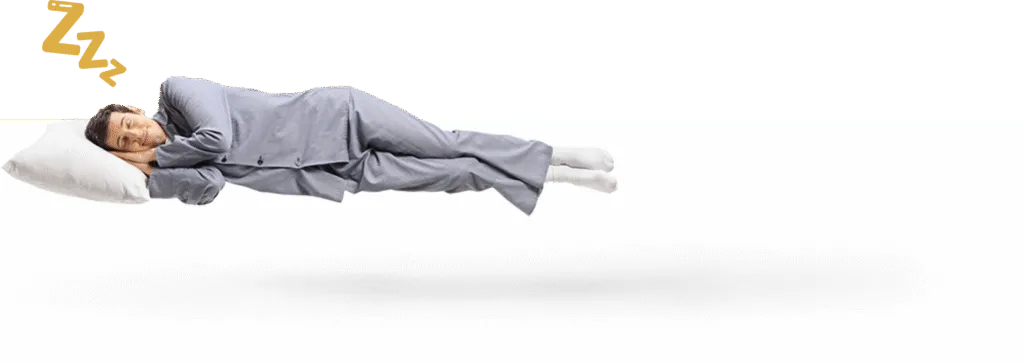
Dreaming of the perfect nights sleep?
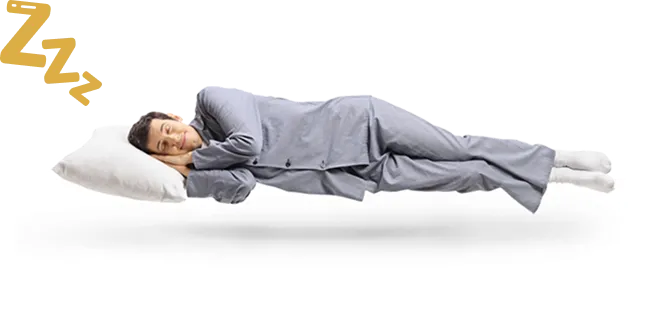
Ask us a question
There are over 6000 questions and answers submitted by you on all questions about mattresses and bed problems. Enter a keyword such as Vi Spring, John Lewis beds, bad back or Memory Foam and see if your question has already been answered.
If you can’t find an answer in knowledge hub, ask a new question. We aim to respond to all questions within one working day.
Newsletter
Enter your email to join our newsletter. We’ll send you occasional news and mattress expertise.

